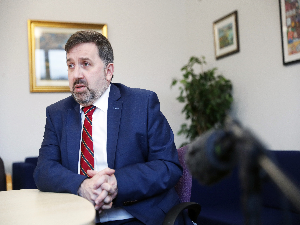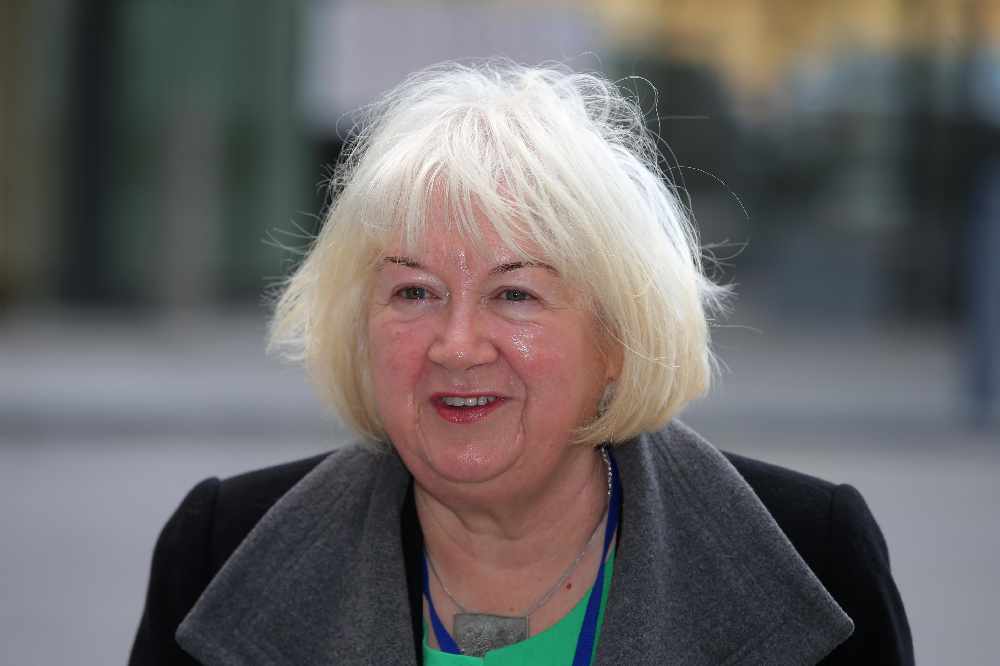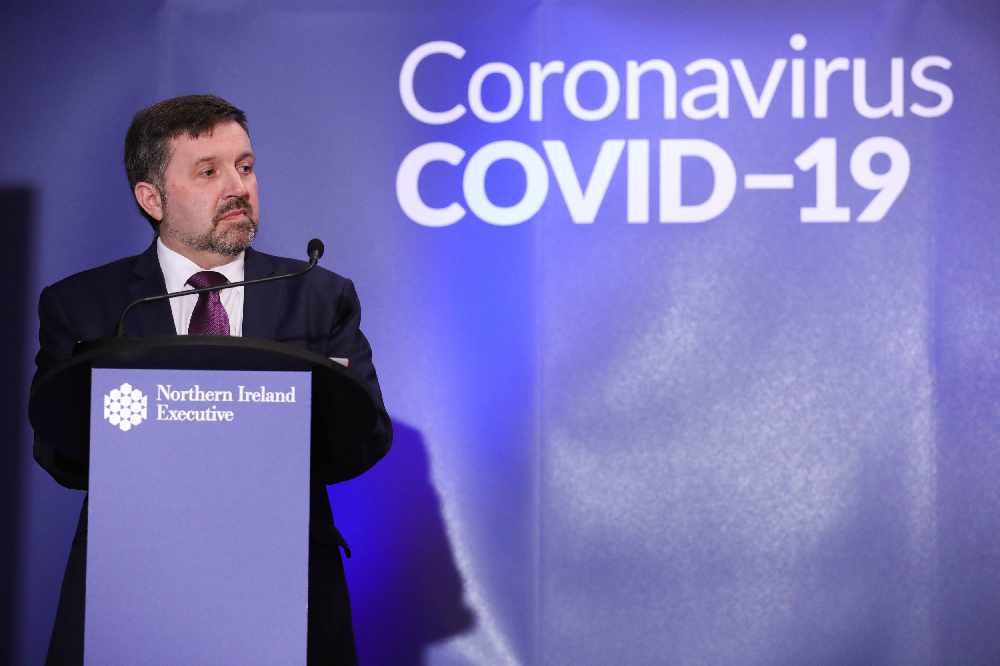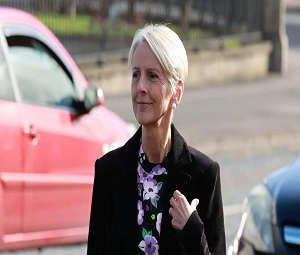
By Rebecca Black, PA
Northern Ireland’s Health Minister Robin Swann has said his department will “carefully consider” the Living with Covid plan unveiled in England.
Prime Minister Boris Johnson announced on Monday that those who test positive for coronavirus will no longer be legally required to isolate from Thursday, and free universal testing will end in April in England.
Under the strategy, those who receive a positive Covid-19 test will still be advised to stay at home for at least five days, but will not be obliged to under law under the plans subject to parliamentary approval.
Reacting, Northern Ireland’s Health Minister said no decisions have been taken on any changes to Test and Trace in the region.
“My department continues to keep all aspects of the Covid-19 test and trace programme in Northern Ireland under review to ensure it remains proportionate and effective,” Mr Swann said.
“Our key priorities for testing include ensuring that it is prioritised for those who need it most. It is also imperative that we have appropriate contingency planning in place, with flexible testing capability which can be rapidly deployed to respond to any future variants or seasonal surges. Robust surveillance systems must also be maintained, to ensure any new developments in the pandemic are swiftly detected.
“Keeping the public safe, in particular those at highest risk of severe illness, will continue to be at the centre of our considerations. Any policy changes will be informed by the latest clinical and scientific advice and consideration of the Covid situation in Northern Ireland.”
Mr Swann added: “Covid-19 remains a serious health risk, particularly for those who are vulnerable. It is vital that we do not let our guard down. We can all help to keep the people close to us safe by continuing to make safer choices and following the latest guidance.”
Earlier, the Department of Health announced that a further Covid-19 booster vaccine is to be offered to all those aged 75 and over in Northern Ireland.
The additional jab will also be offered to anyone over the age of 12 who is immunosuppressed.
The Joint Committee on Vaccination and Immunisation (JCVI) has advised that those at a higher risk of infection receive an additional booster this spring.
Patricia Donnelly, head of Northern Ireland’s vaccination programme, said the autumn booster gave “high level of protection against severe disease”.

(Patricia Donnelly says a new spring booster programme will be rolled out here)
“Covid-19 has now been with us for two years and we know that it has disproportionately affected a number of groups including; older adults, residents in care homes and those with certain underlying health conditions,” she said.
“We can also see from the evidence that the booster programme introduced in September 2021 has provided high levels of protection against severe disease.
“The latest data from the UK Health Security Agency has indicated that while protection against mild infection appears to wane, protection against severe illness and hospitalisation is well maintained in older adults, underlining the importance of the booster, particularly for vulnerable groups.
“The latest advice from the JCVI will help us transition to the next phase of our programme and enable us to put operational plans in place for 2022 and onwards so that we can continue to offer the vaccination and the protection it provides to those most at risk from the virus at the most appropriate time.”
The deaths of four more people who had previously tested positive for Covid-19 and another 2,235 cases of the virus were confirmed in Northern Ireland on Monday.
On Monday morning, there were 443 Covid-19 patients in hospital, 12 of whom were in intensive care.

(Health Minister Robin Swann will “carefully consider” the Living with Covid plan unveiled in England.)


 Officer to be prosecuted for offence linked to Troubles memorial during pandemic
Officer to be prosecuted for offence linked to Troubles memorial during pandemic
 Pair appear before court charged with nurse’s murder
Pair appear before court charged with nurse’s murder
 Woman dies in West Belfast house fire
Woman dies in West Belfast house fire
 Eleanor Donaldson’s bid to have two charges withdrawn ‘should not delay trial’
Eleanor Donaldson’s bid to have two charges withdrawn ‘should not delay trial’
 Police surveillance operation to unmask journalistic source ruled unlawful
Police surveillance operation to unmask journalistic source ruled unlawful